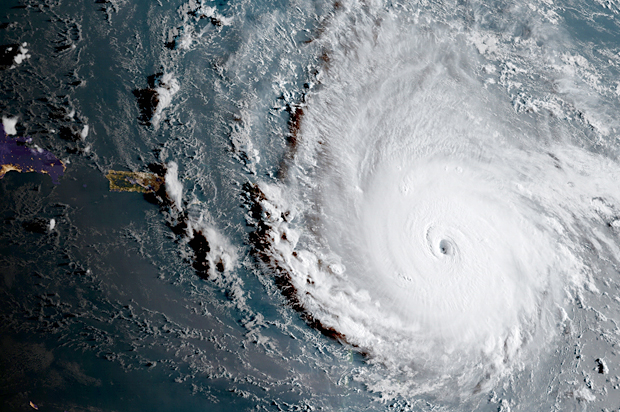The Federal Emergency Management Agency is “running on fumes” and may run out of money as soon as Friday, just as Hurricane Irma, an “extremely dangerous” hurricane, is expected hit the southern coast of Florida this weekend.
After Hurricane Harvey ravaged Texas, the federal response to the disaster “has quickly depleted FEMA’s disaster relief fund, which dropped by $2.14 billion last Thursday to $1.01 billion as of Tuesday,” NBC News reported.
“FEMA is scheduled to run out of money by Friday, Sept. 8, just two days before Hurricane Irma is expected to hit Florida,” Florida Sens. Bill Nelson and Marco Rubio said in a joint statement, NBC reported. “Unfortunately, the current disaster relief package Congress is considering for Hurricane Harvey doesn’t account for the additional costs FEMA will likely incur as a result of Hurricane Irma.”
The $7.85 billion aid package for Harvey has now passed the House and the Senate but it still won’t be enough to help potential destruction caused by Irma, the most powerful hurricane ever recorded in the Atlantic. The White House has requested that Congress pass another Harvey aid package by the end of September in order to keep the government operating, which is worth $6.7 billion, but recovery in Texas is said to cost as much as $180 billion, NBC reported.
President Donald Trump praised FEMA’s “bravery” and what they have been able to accomplish in recent weeks. “I don’t think anybody has done anything like they’ve done at FEMA, and they have done a very good job,” he said, according to NBC. However Trump’s past budget proposal called for slashing funds that would go to the same federal agencies he’s recently praised.
FEMA funds have depleted rapidly because the agency has been working to pre-position resources and personnel in potential disaster zones.
NBC elaborated:
After the federal government’s calamitous response to Hurricane Katrina, Congress passed a bill that allowed FEMA to pre-position supplies and personnel in an anticipated disaster zone ahead of a state’s request, among other reforms.
[…]
Unlike other agencies, FEMA bases its annual budget requests on its spending plans for past major disasters, as well as a 10-year average for non-catastrophic events. Since the frequency and severity of extreme weather events have increased in recent years, federal spending on disaster relief has been rising.
“It’s more expensive to lean forward, but that’s what we owe it to survivors to do,” said Rafael Lamaitre, a former FEMA spokesperson who worked for the Obama administration, NBC reported. “At this point FEMA is running on fumes.”
Hurricane Irma is expected to make landfall in southern Florida by Saturday night into Sunday after it has already devastated the island of Barbuda on Tuesday night and early Wednesday, according to the Washington Post. The storm also hit Puerto Rico on Wednesday and passed “just north of Hispaniola and Cuba as it moves into the Southeast Bahamas” on Thursday and will continue throughout Friday.
“Severe hurricane conditions are expected over portions of the Florida peninsula and the Florida Keys beginning late Saturday,” the National Hurricane Center said on Thursday night, according to the Post. “Irma could make landfall in southern Florida as a dangerous major hurricane, and bring life-threatening storm surge and wind impacts to much of the state.”

